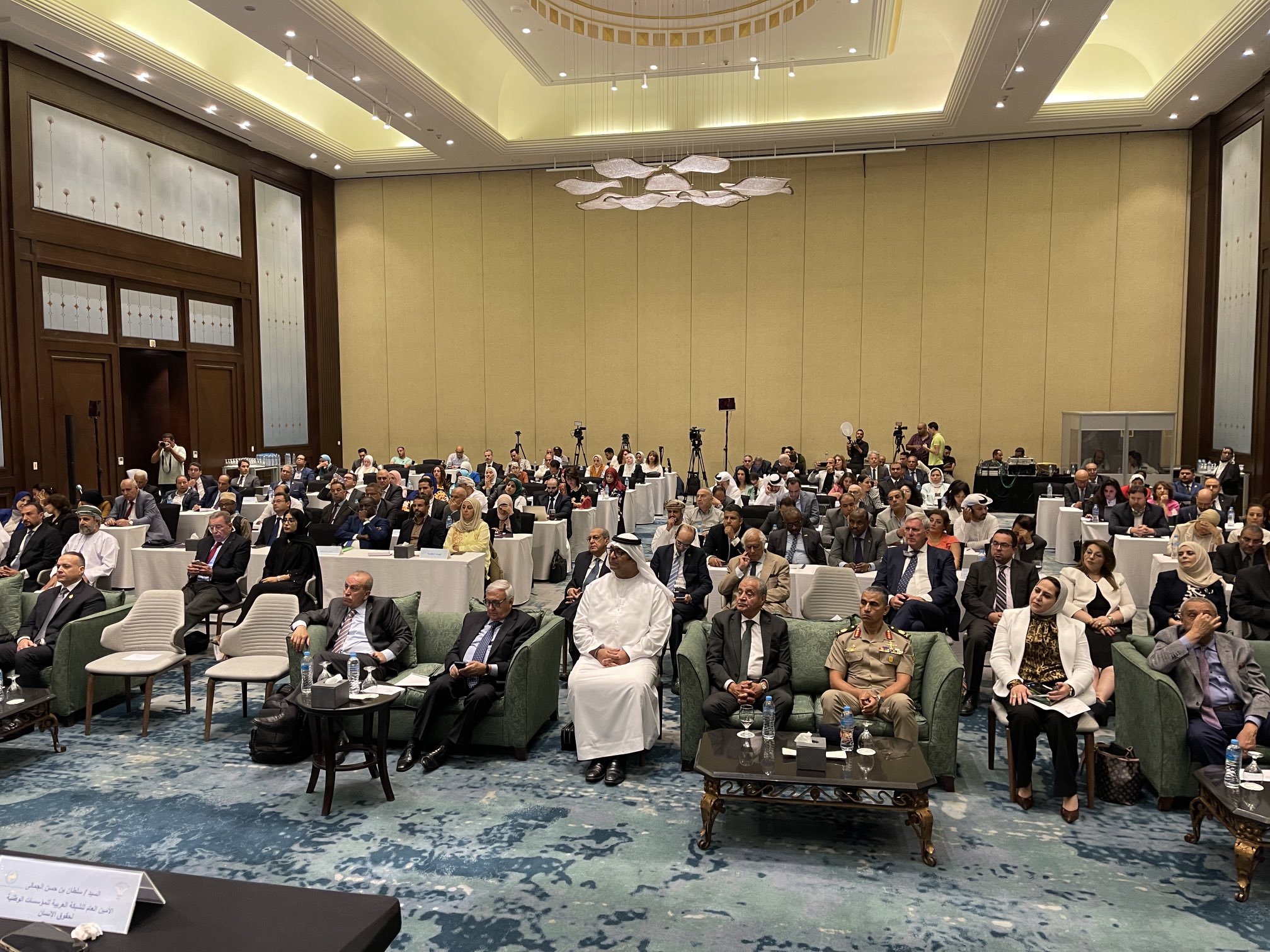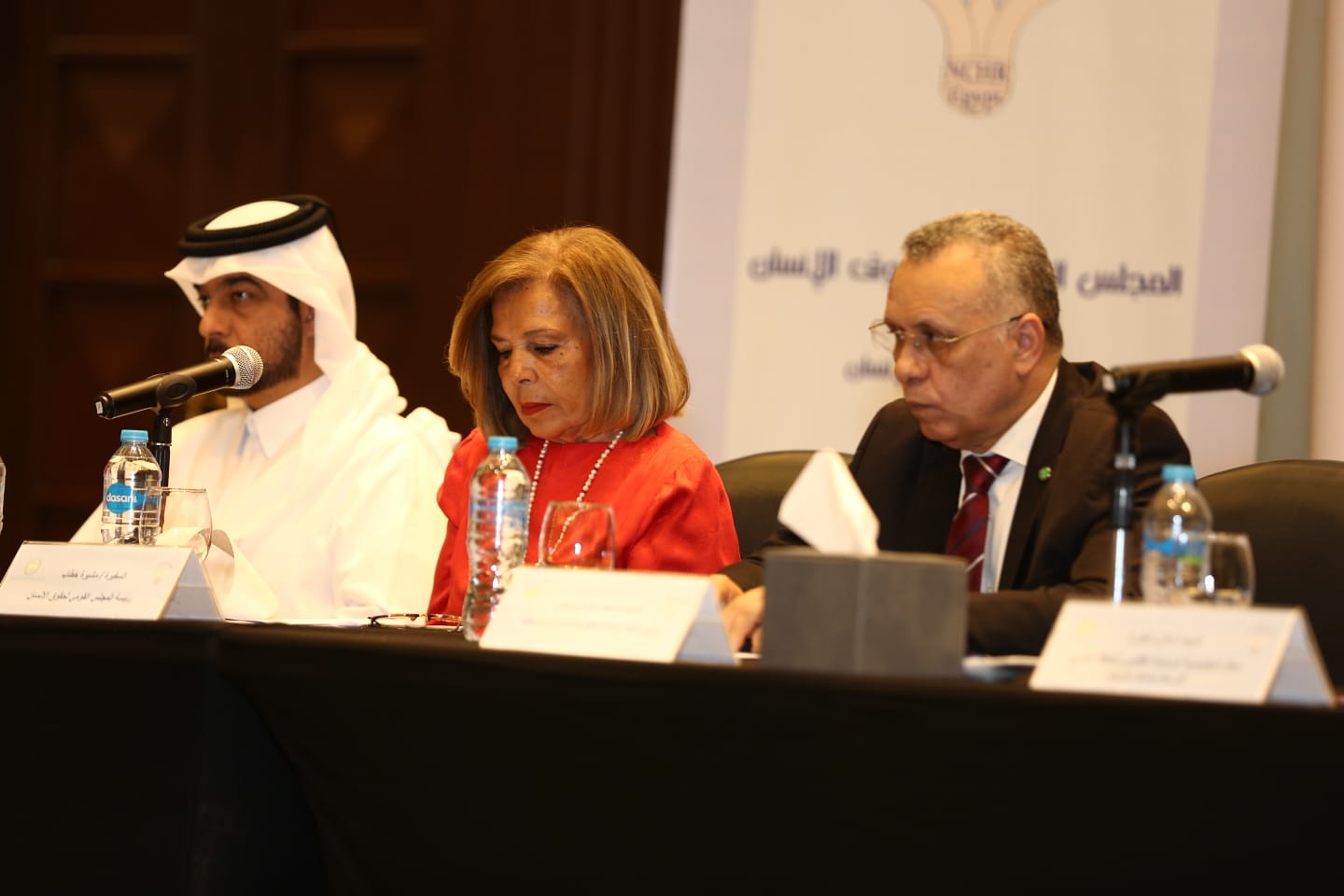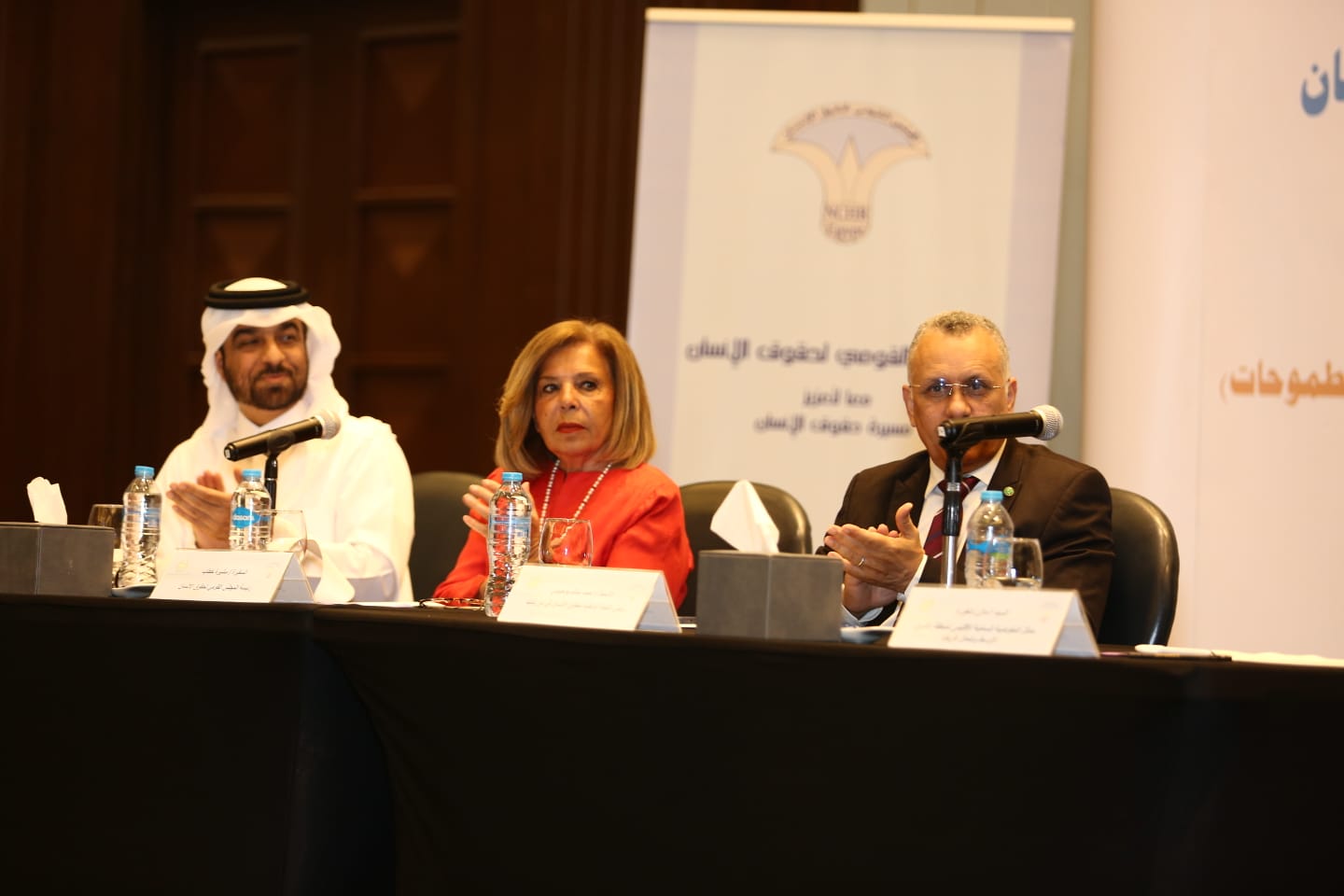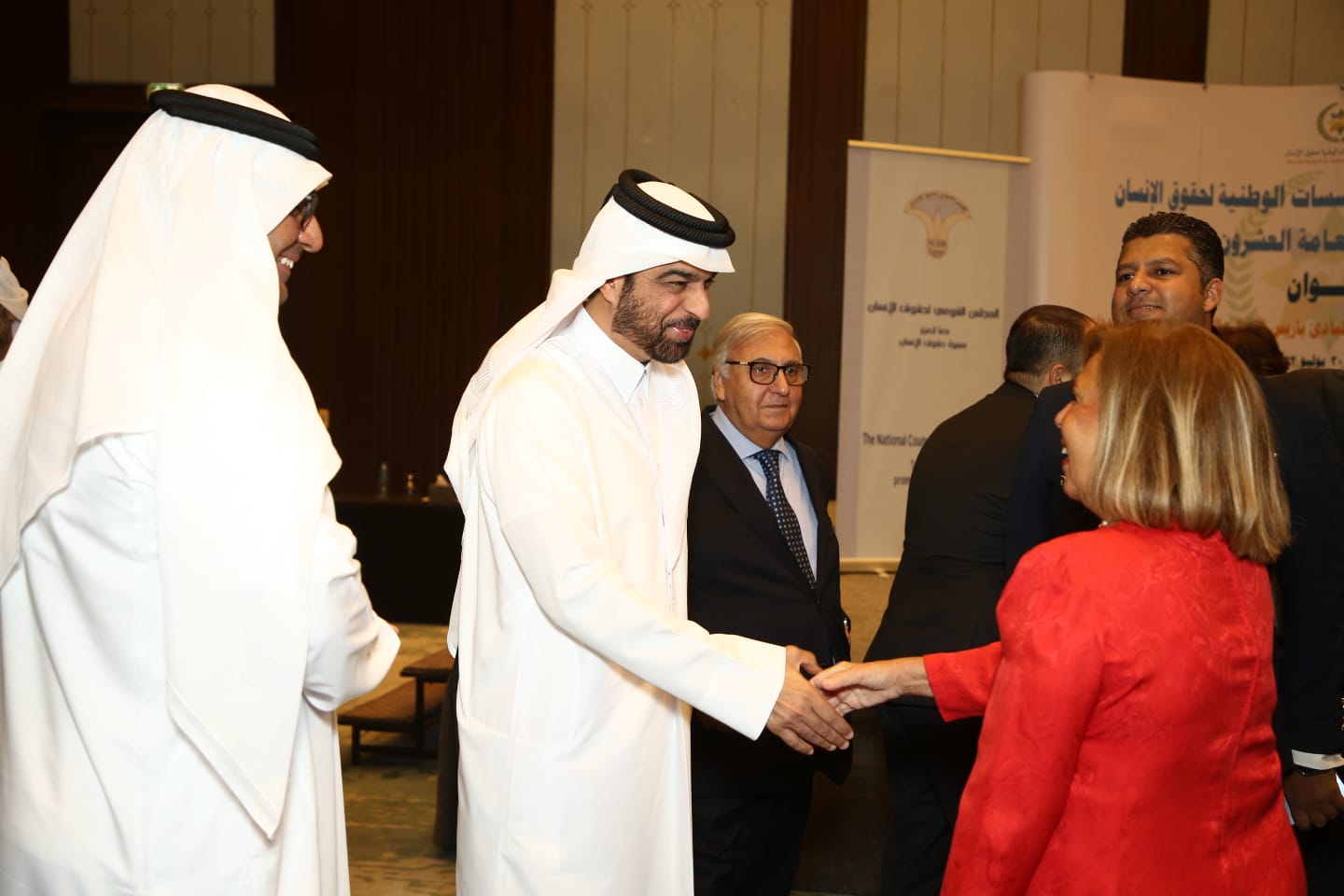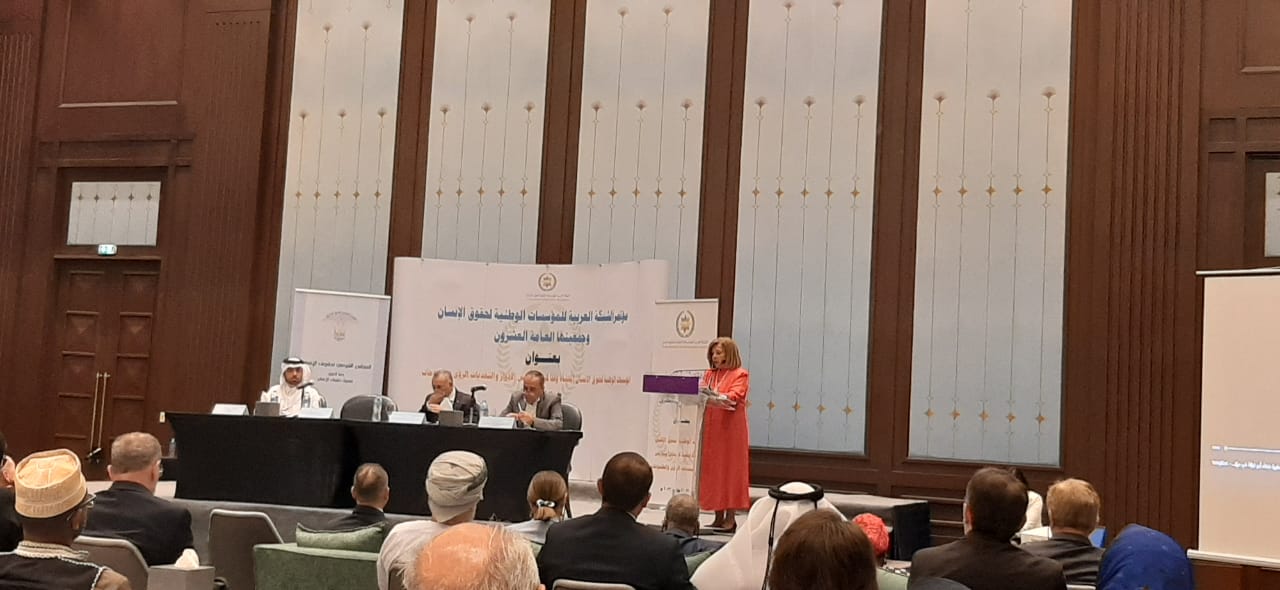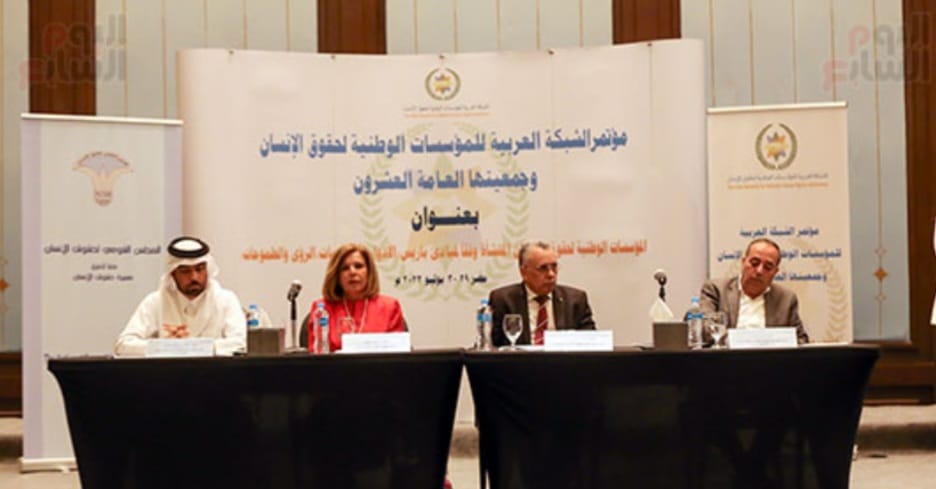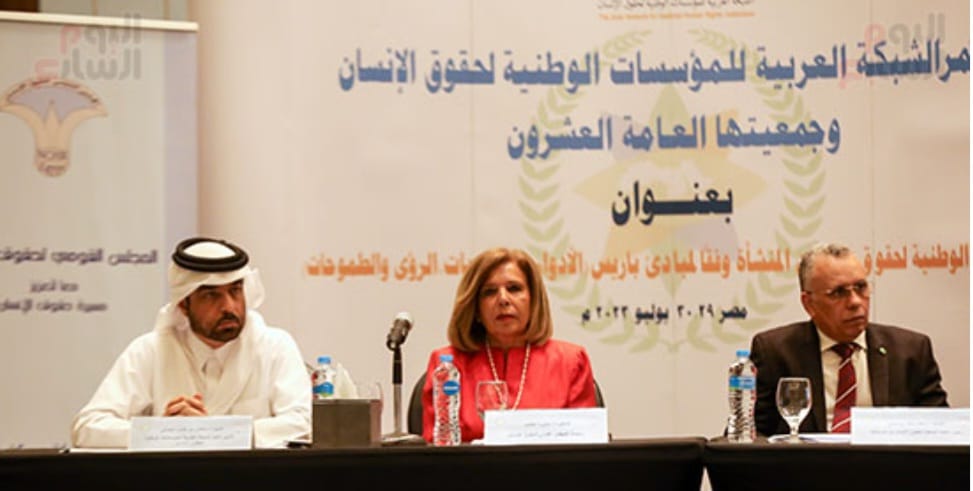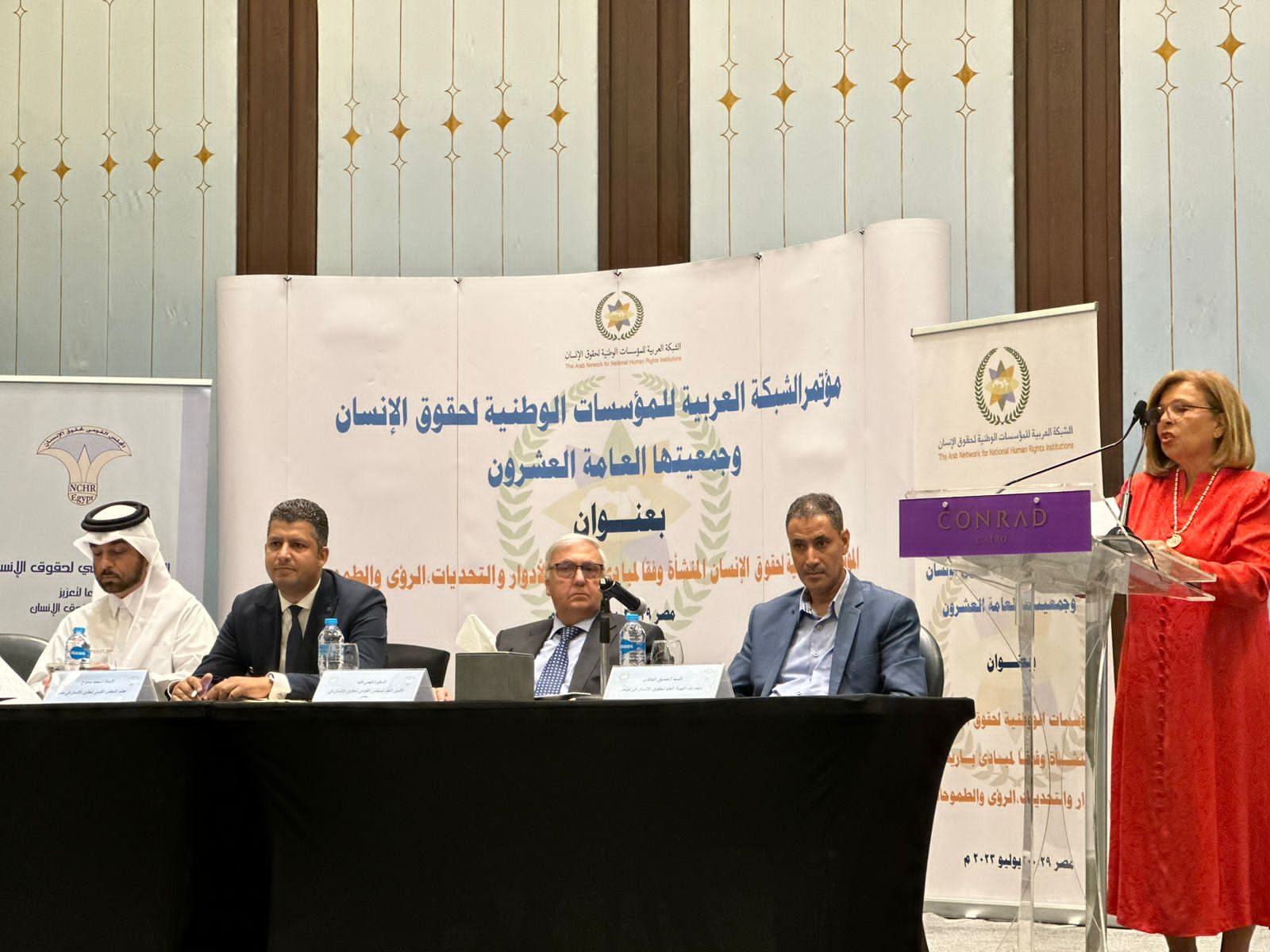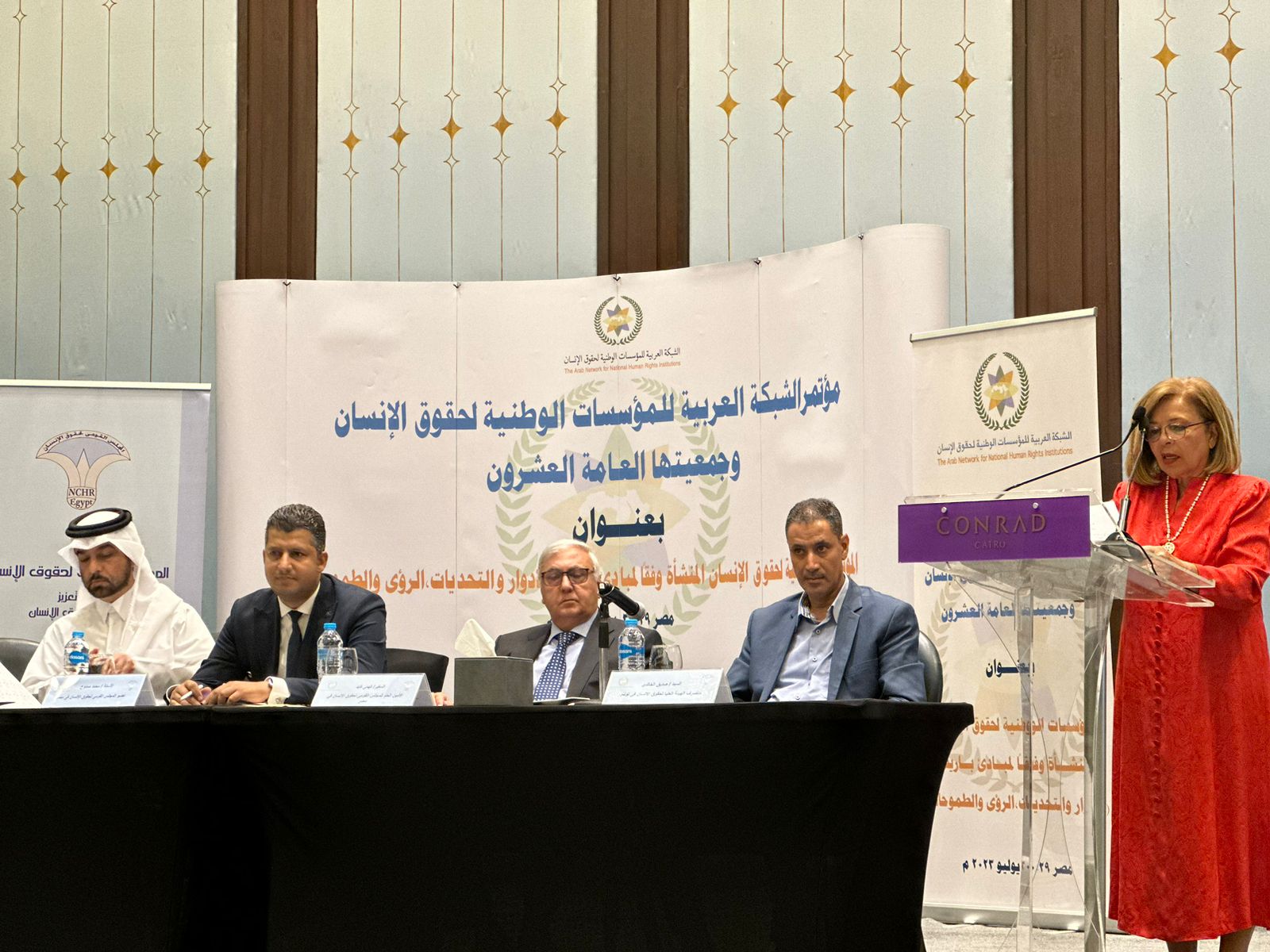The National for Human Rights assumes the presidency of the Arab Network of National Human Rights Institutions
The National Council for Human Rights (NCHR), in cooperation with the Arab Network for National Human Rights Institutions, held an international conference entitled “National Human Rights Institutions Established in Accordance with the Paris Principles « Roles and Challenges, Visions and Aspirations”, in the presence of Dr. Ali Moslehi, Minister of Supply and Internal Trade, the Assistant Minister of Defense and a Assistant Minister of Justice, heads and members of national human rights institutions, the regional representative of the Office of the High Commissioner for Human Rights in the Middle East, Vladylin Stefanov, Director of the National Institutions and Regional Mechanisms Department of the Office of the High Commissioner for Human Rights in Geneva, Dr. Ammar Dweik, Chairman of the Sub-Committee on Accreditation, and a number of ambassadors and heads of diplomatic missions in Egypt, ladies and gentlemen members T\the House of Representatives and the Senate, representatives of government agencies, ministries, specialized national councils, civil society organizations and Arab media institutions.
The session opened with a speech by Mr. Ahmed Salem Bouhabini, Chairman of the National Human Rights Committee in Mauritania, who thanked the Arab Republic of Egypt for hosting the conference and its good organization, stressing the importance of the role of the Arab Network as it represents a public body working within a framework of cooperation between all relevant parties in spreading and promoting a culture of Human rights in the Arab world.
He announced the handover of the presidency of the Arab Network for National Human Rights Institutions to NCHR in Egypt, hoping that it will be a period full of great achievements.
Moshira Khattab, President of NCHR, appreciated the network's effort in providing support to the National Institution for Human Rights, especially the support during the accreditation process before the Sub-Committee of the Global Alliance of National Institutions.
Khattab affirmed that the only way to peace, security, justice and prosperity for the Arab peoples is the realization of human rights to become a reality for every citizen, and indicated with regard to the Palestinian issue that human rights is the sure way to restore the rights of the people of Palestine who were robbed by the occupation authority.
She concluded her speech with the importance of this meeting, which coincides with the 75th anniversary of the Universal Declaration of Human Rights and the 30th anniversary of the Paris Principles that govern the work of national human rights institutions.
In the same context, Ambassador Haifa Abu Ghazaleh, Assistant Secretary-General and Head of the Social Affairs Sector at the League of Arab States, stressed during her recorded speech the importance of strengthening cooperation between the Arab Network and the Arab League in raising awareness and education on human rights to advance the system as a whole in the Arab world.
Mr. Mazen Shakoura, the High Commissioner's Regional Representative for the Middle East and North Africa, explained that regional institutions have an important role in achieving the goals of sustainable development by contributing to national dialogues, exchanging experiences, and emphasizing the importance of human rights approaches at all levels, whether in policy-making, planning or implementation in order to Ensuring sustainable development for all without discrimination on any grounds.
Mr. Sultan bin Hassan Al-Jamali, Secretary-General of the Arab Network for National Human Rights Institutions, concluded the opening session by delivering his speech in which he congratulated Egypt on assuming the presidency of the Network, confident of achieving the aspirations and recommendations issued by the General Assembly of the Network to achieve the common goal of promoting and protecting human rights in a way that contributes to the preservation of human dignity, stressing To continue the network's dynamic work through cooperation with partners, which will allow covering most of the needs of the member national institutions according to priority.
The conference continues to hold its sessions throughout the day, which revolve around exchanging insights, lessons and best practices, and presenting the challenges facing national human rights institutions. The participants expressed their appreciation for the conference's deliberations.





 English
English
 Arabic
Arabic
 French
French
